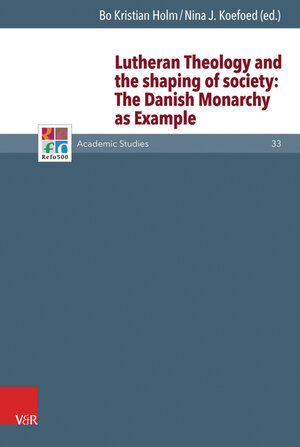
×
![Buchcover ISBN 9783647551241]()
Lutheran Theology and the shaping of society: The Danish Monarchy as Example
The Danish Monarchy as Example
herausgegeben von Bo Kristian Holm und Nina J. KoefoedFrom different perspectives this book studies the role of Reformation theology in the shaping of Danish society and the social dimensions of Lutheran confessional culture. The book develops an approach making it possible to draw strong conclusion about the social teaching of Luther and its impact on the development of the Danish society. It works on a conceptual level by analyzing the social dimensions of key Lutheran concepts and their translation into the doctrine of the three estates (church, household, and state), and on the level of lived experience of life within these three orders, not at least within the household forming the ideal form also for church and state. Thus the chapters in the book endeavor to connect the social ideas inherent in the Lutheran confession with the social formation of the Danish state from the Reformation into the period of Absolutism. A long mono-confessional situation within the Danish Monarchy makes it possible to study the impact of Lutheranism and the development of a confessional culture within a uniquely long timeframe. The focus is on basic mediums for the translation of Lutheran ideas into social practice: law, primarily connected to marriage and family; and the role of household, both as primary social relations and as basic social and political model. In this way the book offers important insights for theologians, historians, sociologists, and academically anyone interested in the relation between theology and sociality, confession and culture.



